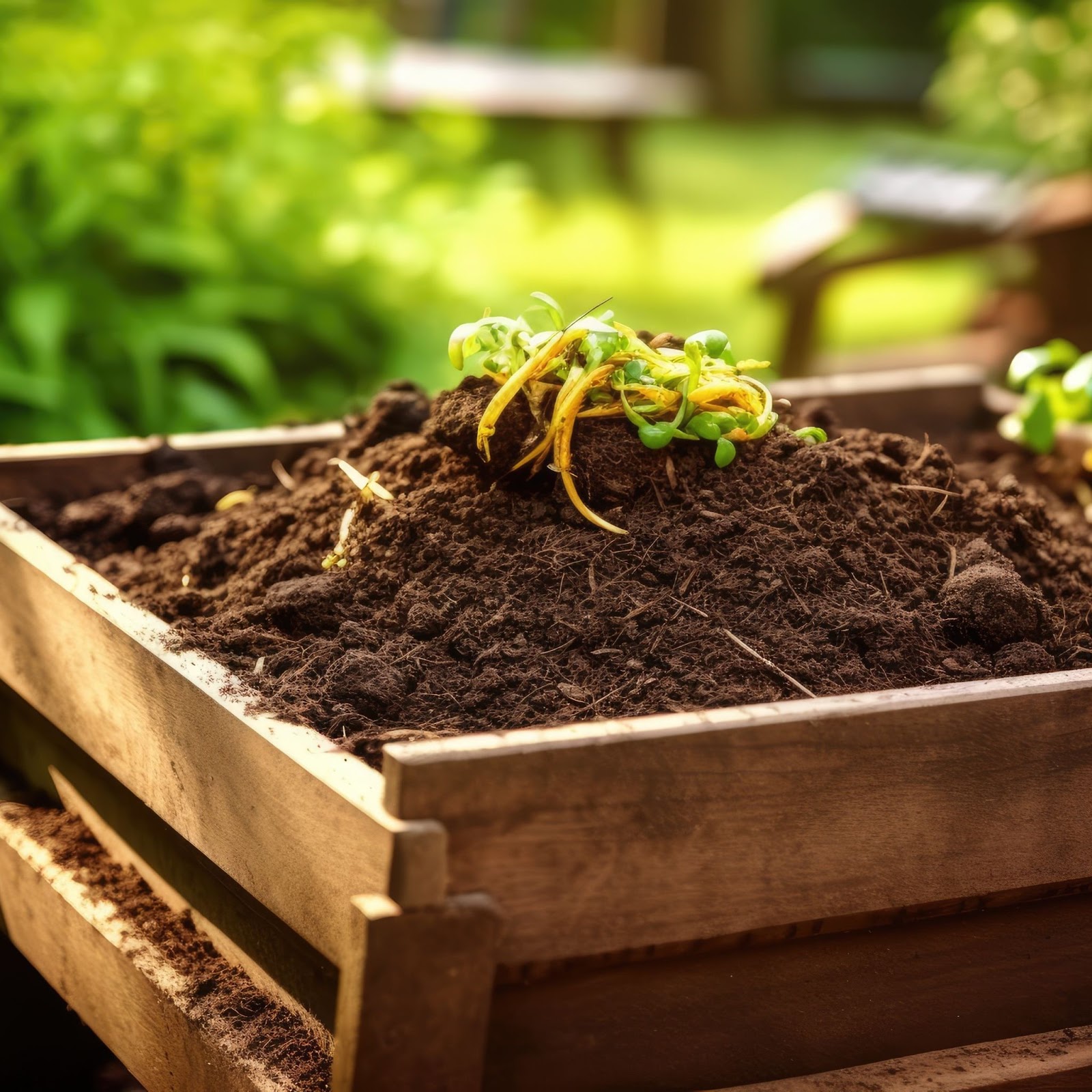
Composting is a fantastic way to reduce waste, enrich your garden, and contribute to a healthier environment. This guide aims to help you get started and understand the benefits of turning food scraps and garden waste into nutrient-rich compost.
What is composting?
Composting is the natural process of recycling organic matter, such as leaves, grass cuttings, and discarded food into a valuable, nutrient dense fertiliser that can enrich soils and promote healthy plant growth. The process involves the decomposition of organic matter by microorganisms.
What are the benefits of composting?
Reduction in waste
Composting can significantly reduce the amount of waste sent to landfills from households. Organic waste makes up a huge proportion of household rubbish, composting helps to divert this waste from landfills; conserving landfill space.
Soil enrichment
Compost improves soil structure, texture, aeration, and ability to retain water and nutrients. Adding compost to soil ultimately promotes healthier plant growth, reduces soil erosion and prevents the leaching of nutrients from soil.
Reduces the need for chemical fertilisers
By adding compost to soil, essential nutrients are provided to plants naturally, reducing the need for synthetic fertilisers. This is important because chemical fertilisers are expensive, making them inaccessible for some people. Synthetic fertilisers also negatively impact water quality because they cause eutrophication; when fertilisers contaminate a water source they result in an algae bloom, which produce toxins, deplete oxygen and block out sunlight; killing aquatic plants and animals.
Encourages beneficial organisms
Composting attracts organisms such as earthworms and beneficial bacteria, which help to aerate the soil, break down organic material and further enrich the soil.
Reduces greenhouse gas emissions
Composting organic waste reduces methane emissions from landfills, a potent greenhouse gas that contributes to climate change.
How to start composting at home
- Select a compost bin
For backyard composting, you can use a simple rubbish bin or a more sophisticated tumbler. - Find the right location
Place your compost bin in a convenient location. For outdoor bins, a spot with good drainage and partial shade is ideal. For indoor bins, find a cool, dark place. - Add the right materials
Composting requires a balance of green and brown materials. Green materials include fruit and vegetable scraps, coffee grounds, and grass cuttings; these are important as they provide nitrogen. Brown materials include dry leaves, straw or hay, cardboard, and paper; these provide carbon. - Maintain your compost
Frequent maintenance will ensure that your compost breaks down efficiently. Turn the pile regularly to aerate the compost pile and speed up the decomposition of organic matter. Monitor the compost, your compost should be moist, add water if it gets a bit dry. Avoid adding certain material such as meat, dairy, oils and diseases plants as these can attract pests and create foul odours. - Harvest your compost
Depending on conditions, compost can take anywhere from a few months to a year to be ready for use. Finished compost is dark, crumbly and has an earthy smell to it. Use it to enrich your garden soil, top-dress your lawn or add it to a potting mix. If you cannot find a personal use for your compost you could always donate it to a local garden centre or park.
Composting at home is a simple yet powerful way to contribute to a more sustainable lifestyle. By turning your organic waste into valuable compost, you can reduce your environmental footprint, improve your garden and support our planet. Happy composting!






